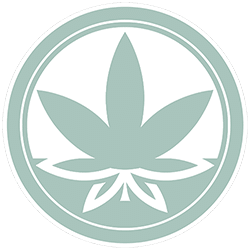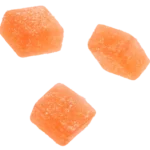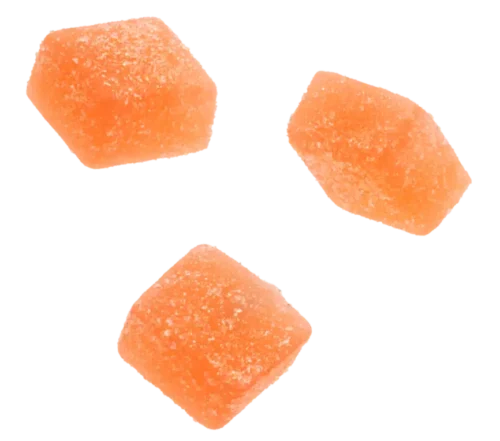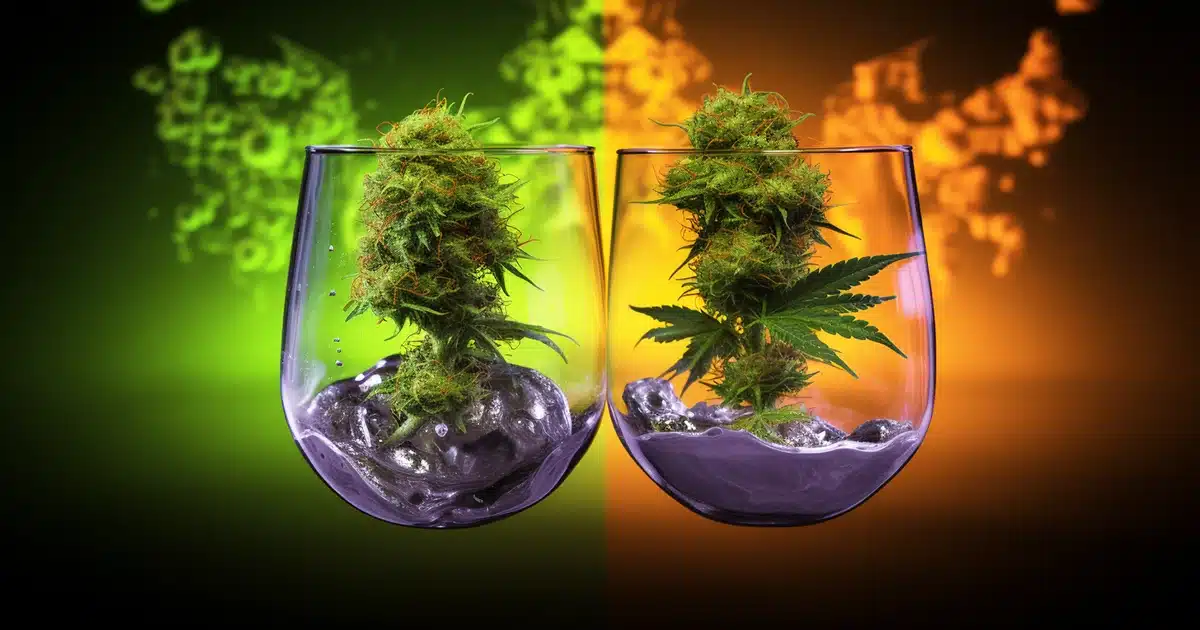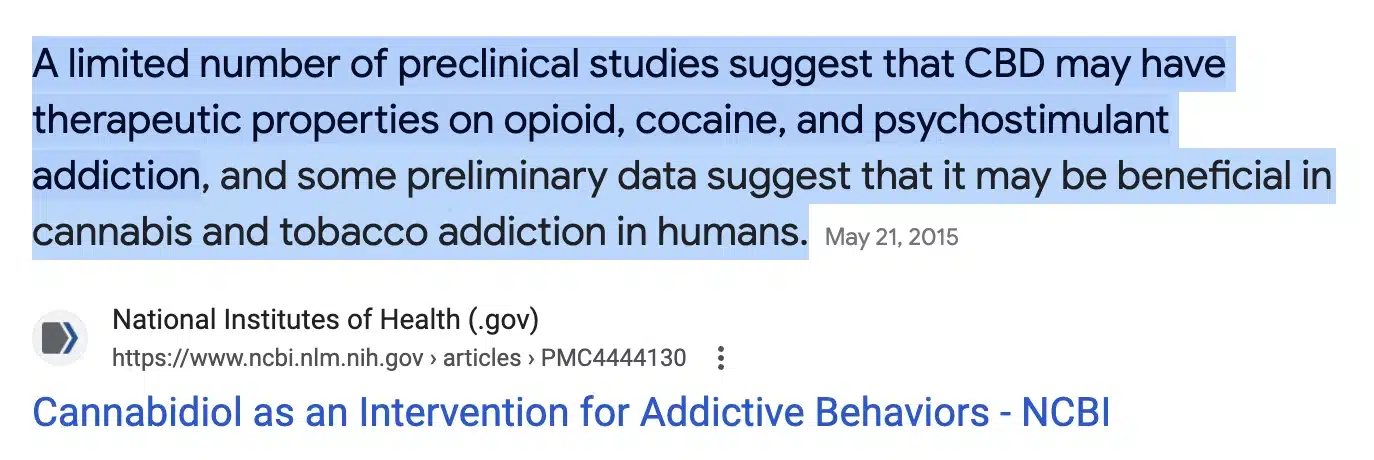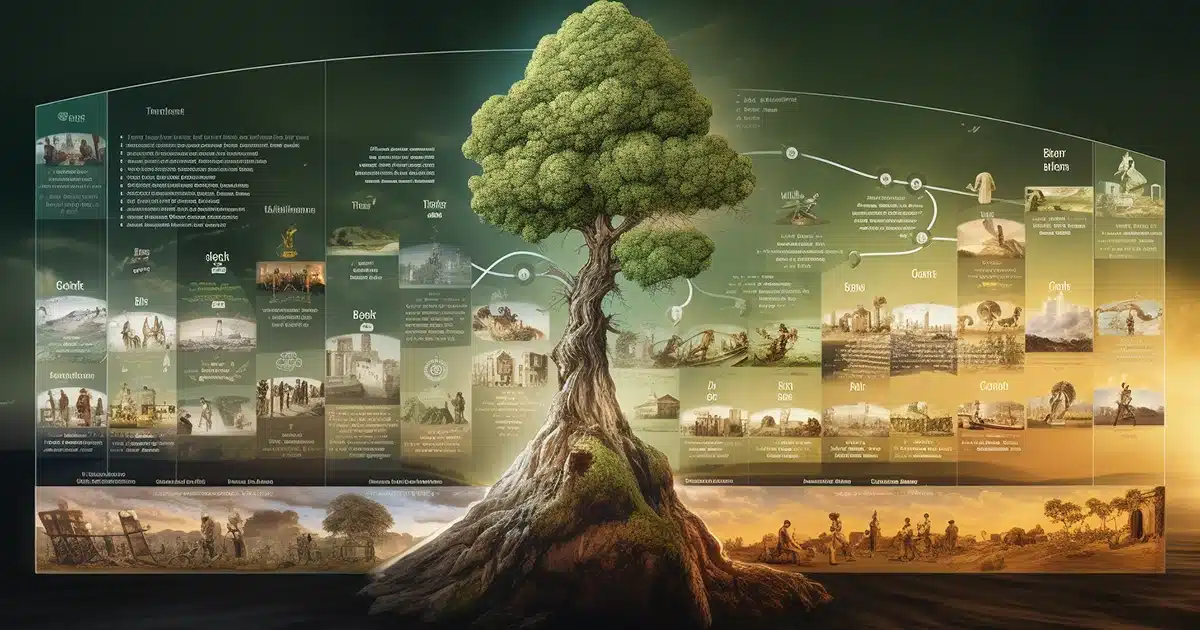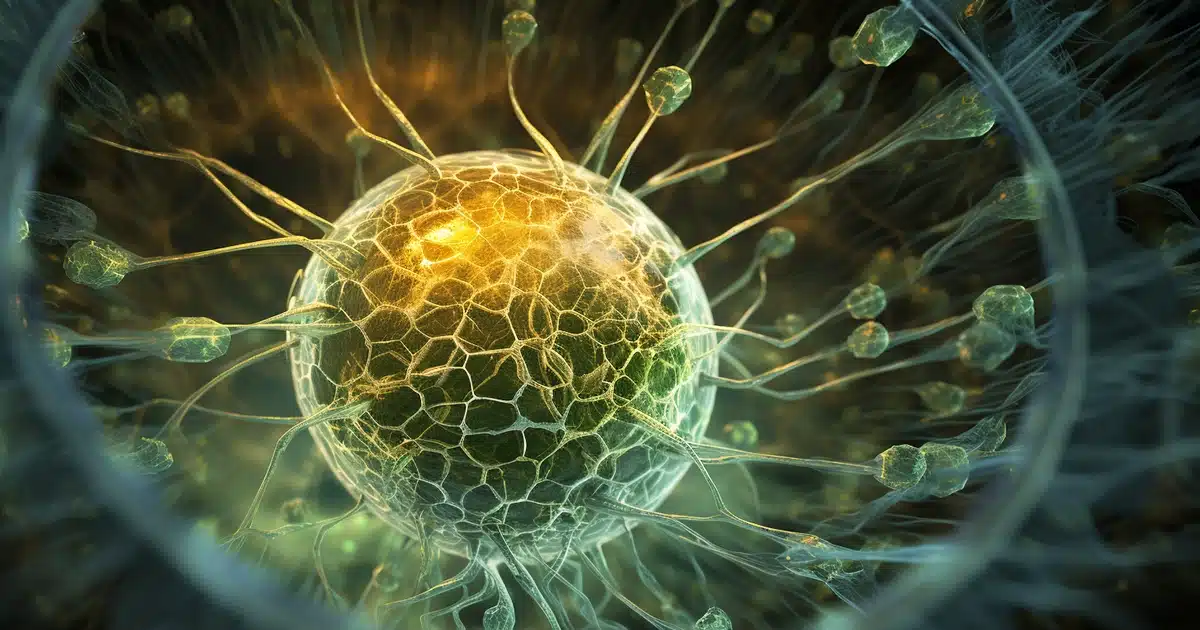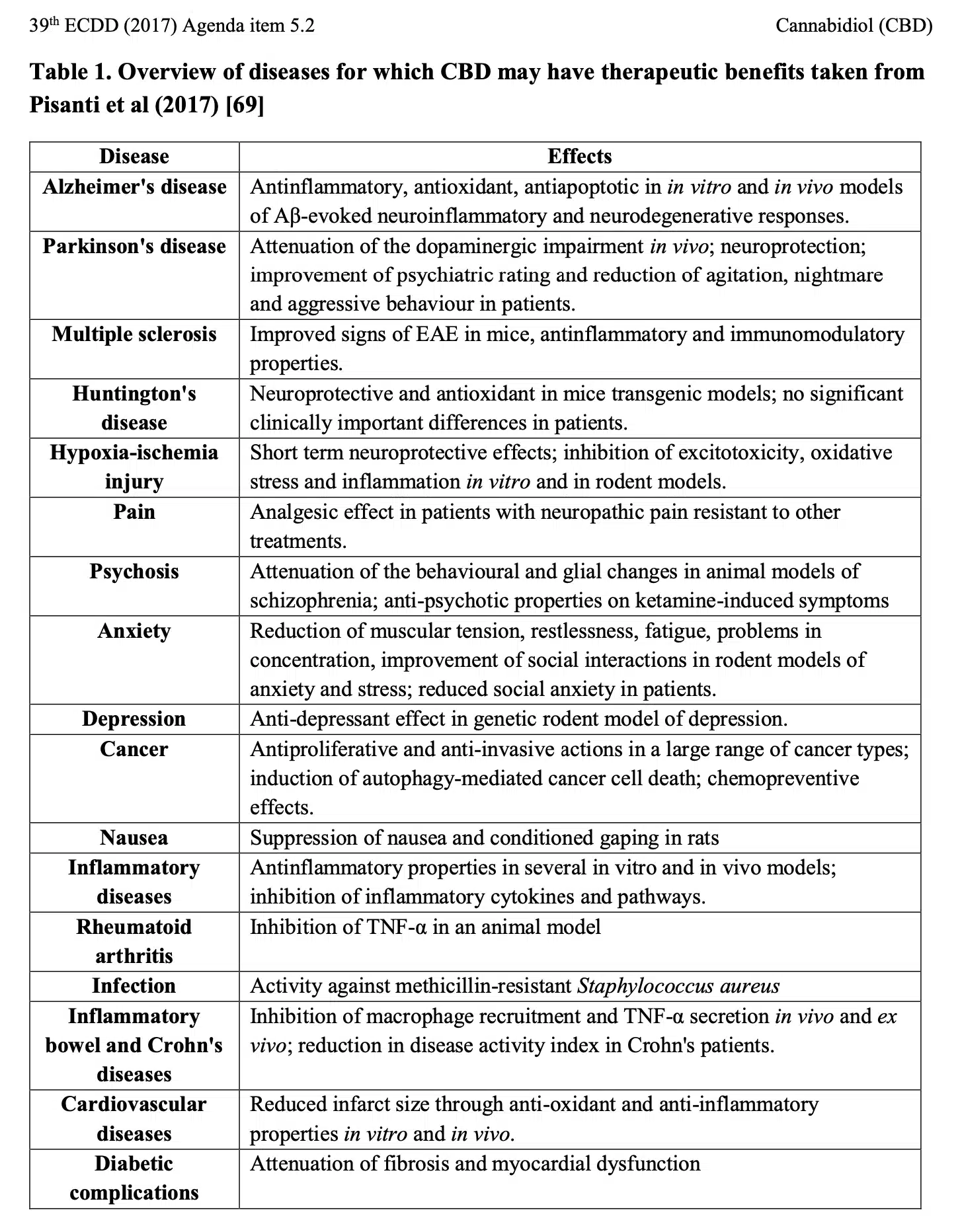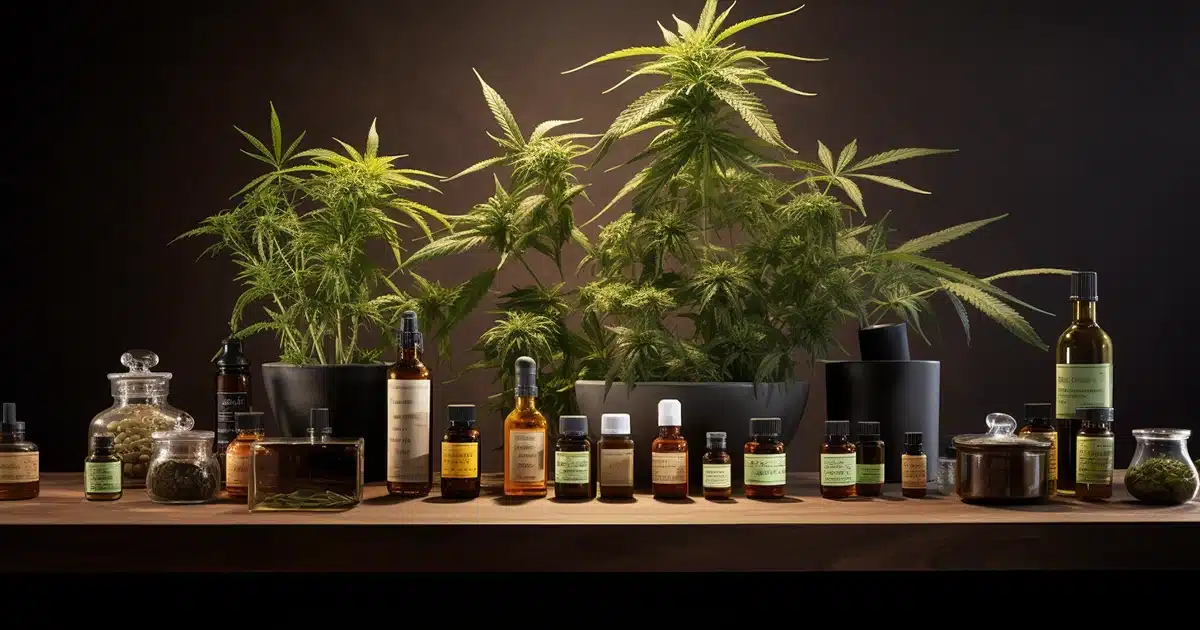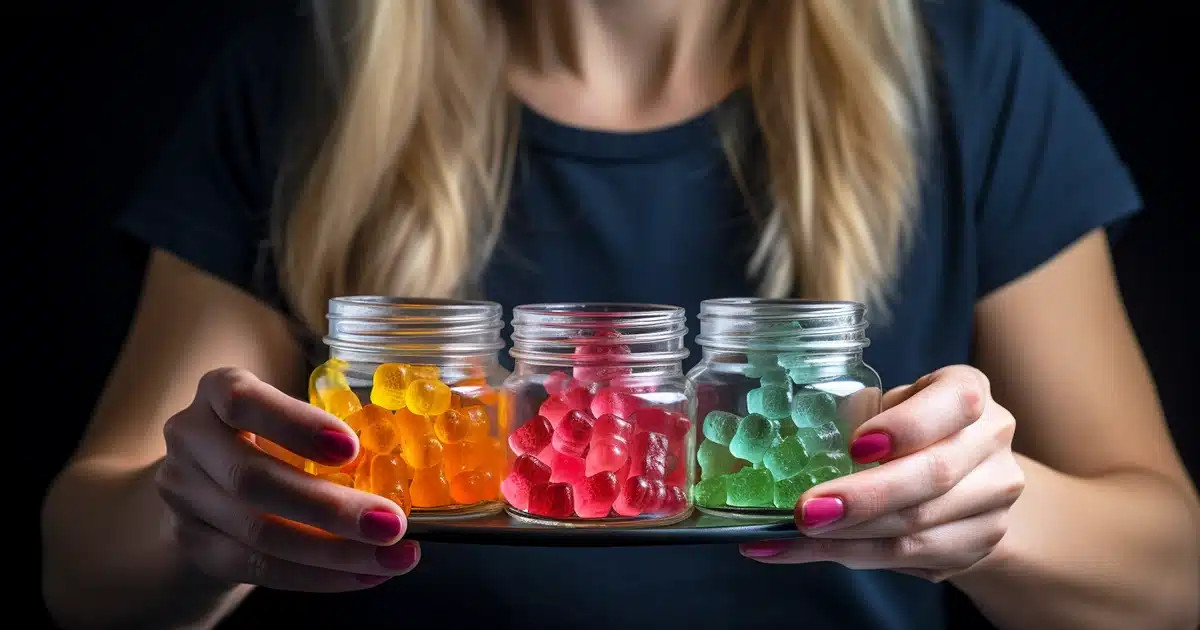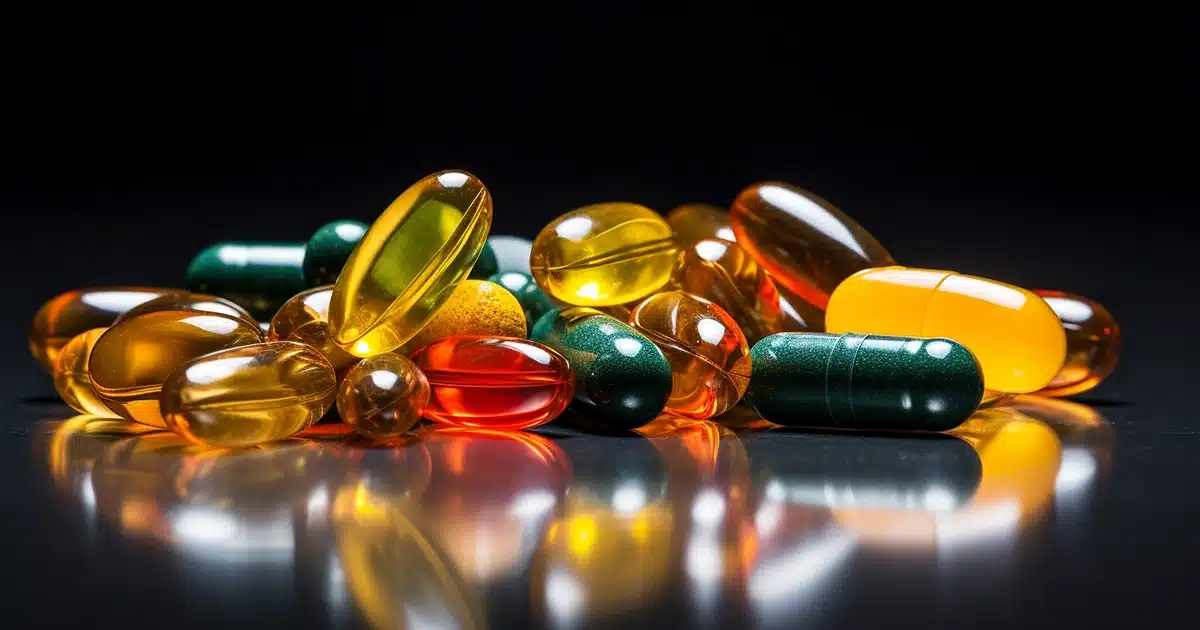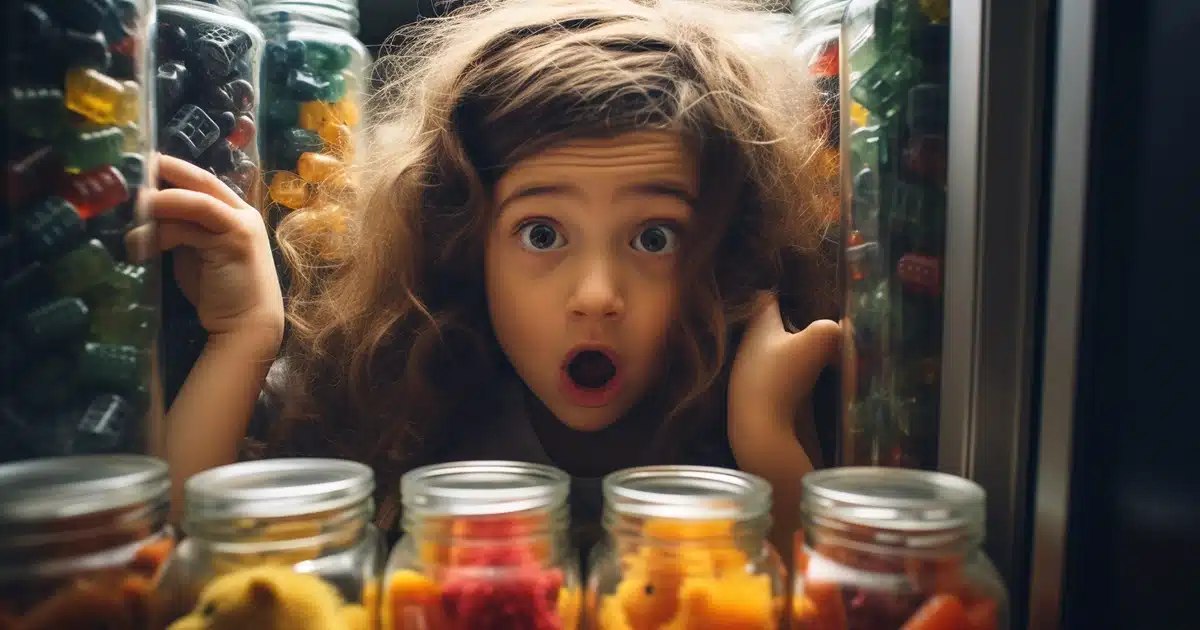What Is CBD?
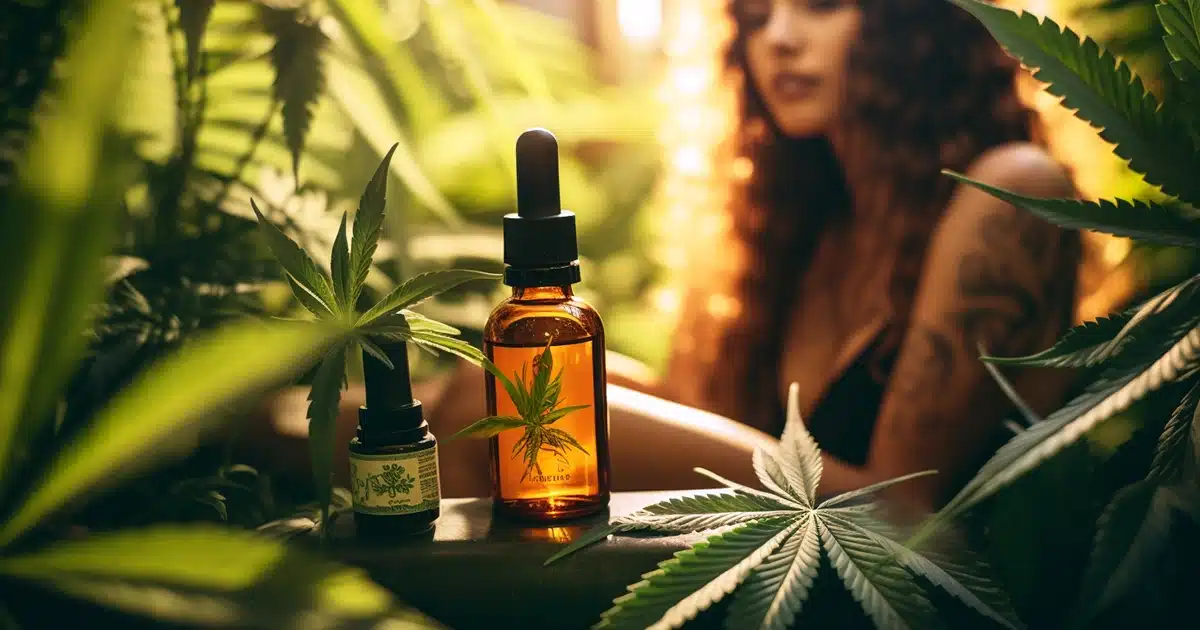

Christopher Visser
Multi-Cannabis Business Owner
Christopher Visser, the Founder and CEO of Cannabidiol Life and THCGummies.com, is a distinguished figure in the CBD industry, recognized for his pioneering contributions since 2016. With over 120 published articles, Christopher has become a reputable cannabis researcher, writer, and author. He's built two prosperous cannabis ventures that collectively generated millions in annual sales. His in-depth analysis of numerous cannabis studies, collaboration with medical professionals, and personal engagement with thousands of customers underline his expertise and commitment to advancing cannabis understanding daily.
-
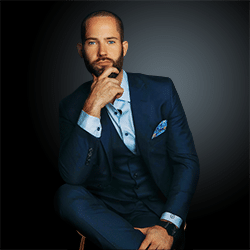 Written By:
Christopher Visser
Written By:
Christopher Visser
- Published:
- Updated: February 8, 2024
- Too Quiet, Light Up The Convo!
Cannabidiol, or CBD, is more than just a trend. Join us as we answer the question, "what is CBD?" in this complete 2023 overview. Discover the comprehensive science, uses, and implications behind this natural wonder. This is your essential guide on the latest of CBD's true potential.
Table of Contents
- Tags: Cannabidiol (CBD), What Is
Quick FAQs
Before we get into the richly-cited research found throughout this comprehensive overview of Cannabidiol (CBD), here are brief and concise answers to the most frequently asked questions.
What Is Cannabidiol (CBD)?
CBD, or Cannabidiol, is a natural compound found in the hemp plant. It’s one of many such compounds, known as cannabinoids. People use it for various health reasons, and it’s become quite popular for its potential benefits.
Is CBD legal?
The legality of CBD varies from place to place. In the U.S., thanks to the 2018 Farm Bill, CBD derived from hemp with less than 0.3% THC is legal at the federal level. But always check your local and state laws to be sure.
What are the benefits of using CBD?
Many folks use CBD for its potential health benefits. Some say it helps with pain, anxiety, and even seizures. However, not all of these benefits have been scientifically proven, so it’s important to do your own research or talk to a doctor.
Is CBD safe for children?
While research is still ongoing, several studies have suggested that CBD is well-tolerated and may be safe and effective for children when used appropriately. The biggest concern is prescription medication interactions, implying that children taking CBD should only be considered when under the care of a medical professional.
What are the potential side effects of using CBD?
While many people use CBD without problems, some have reported side effects like tiredness, diarrhea, and changes in appetite. Remember, everybody’s body is different!
Does CBD get you high?
Nope! CBD doesn’t make you feel “high” like THC does. That’s because they affect the brain differently. So you can use CBD without those “high” feelings.
How does CBD make you feel?
CBD affects everyone a bit differently. Some say it makes them feel relaxed or at ease, while others don’t feel much of a change. It doesn’t have the “high” feeling that you get from THC.
Is CBD addictive?
Current research suggests that CBD isn’t addictive. In fact, some studies show it might even help people with certain addictions. Still, as with anything, it’s important to use it responsibly.
Can I fail a drug test from using CBD?
This directly depends on the type of CBD product. Pure CBD (CBD isolate) infused products will NOT make you fail a drug test because it doesn’t contain THC. However, the trace amount of THC found in Full Spectrum CBD products (<0.3% Delta-9 THC) would be the only cause for caution. Full Spectrum CBD products are NOT recommended if you’re subject to being drug tested for marijuana.
Understanding the ABCs of CBD
CBD is one of over 100 cannabinoids found in the cannabis plant, says the CDC (Centers of Disease Control and Prevention). CBD is a naturally occurring compound, known as a cannabinoid, that doesn’t produce a “high” like THC (another well-known cannabinoid), and is widely used for its potential health benefits.
The most notable being used for supporting the proper functioning of the Endocannabinoid System, reducing anxiety, seizures, and inflammation, improving REM sleep, and helping to manage chronic pain.
Important: CBD use for rare forms of epilepsy is the only medicinal benefit currently approved by the FDA.
With that clearly understood, I also feel that there’s a reason why this single compound found in cannabis plants, which has zero recreational value, has gained unprecedented popularity for various therapeutic uses as well as a holistic remedy. Further, there’s a reason why CBD is being prescribed as medicine in other countries.
CBD is not a cure-all, but it can be a helpful tool in managing certain symptoms and conditions.
- The Conversation Tweet
The Differences & Similarities Between CBD and THC
CBD is known for its therapeutic and medicinal purposes, while THC is more associated with recreational use. If you want to full review on Tetrahydrocannabinol, check out my article on “What Is THC?“
Both CBD and THC are found in cannabis plants. Cannabis plants can be further classified as either marijuana plants or hemp plants. From an article titled “CBD: What You Need To Know” published by the CDC, it states that CBD is found in marijuana plants, but it can also be extracted from hemp plants.
While I’d love to offer you more information, I’ve already covered this specific topic in extreme depth here:
CBD Is Psychoactive (Not Psychotropic & Not Addictive)
Psychoactive: A substance is considered psychoactive if it acts on the central nervous system and can alter brain function, resulting in changes in perception, mood, consciousness, cognition, or behavior. Based on this definition, any substance that has an effect on one’s mental state can be considered psychoactive. Given that CBD can affect mood (e.g., reduce anxiety) and other aspects of brain function, it can technically be considered psychoactive.
Psychotropic: This term is often used interchangeably with psychoactive, but more specifically, it refers to substances that affect a person’s mental state in a way that might be described as “altered states of consciousness.” A psychotropic substance is one that can produce mood alterations, hallucinations, euphoria, or other changes in perceptions that are distinctly different from one’s normal state. THC can induce euphoria and altered sensory perception, so THC fits this description; CBD, however, does not.
Since CBD doesn’t cause “high” effects and isn’t considered recreational, there is no evidence that using it will cause a dependency for it; in fact, it’s quite the opposite.
So, if you’re struggling with breaking the habit of consuming THC regularly, taking CBD the moment you wake up in the morning may curve some of your THC cravings.
ARTICLES YOU MIGHT FIND HELPFUL:
- Learn the differences between Psychoactive vs Psychotropic Substances.
- An end of a debate, CBD Is Psychoactive.
History Of CBD: Timeline Of Events
The history of Cannabidiol spans several centuries and across various cultures. The table below presents a comprehensive timeline of the discovery and development of CBD.
| Year | Event |
|---|---|
| 1940 | Discovery of CBD by Dr. Roger Adams and his team at the University of Illinois. |
| 1963 | Dr. Raphael Mechoulam and his team at the Hebrew University of Jerusalem decipher the structure of CBD. |
| 1980 | Dr. Mechoulam conducts a study demonstrating CBD's potential in treating epilepsy. |
| 1990s | CBD starts to gain popularity, particularly in the United States, due to its potential health benefits. |
| 2000s | Increased research into CBD leads to a wider understanding of its potential therapeutic benefits. |
| 2018 | The Farm Bill is passed in the United States, which legalizes hemp-derived CBD with less than 0.3% THC content. |
CBD Legal: Local Laws & Federal Regulations
According to PBS.org, CBD is legal to purchased according to federal regulations, as long as it contains less than 0.3% Delta-9 THC.
This means, you will never get in trouble by the FBI or the FDA if you buy or use CBD. However, you local state might have separate rules regarding its allowed use. Please see the chart below to view current local state CBD laws as of May 2023.
For quick understanding of the chart below:
- “Fully Legal” means it doesn’t matter if the CBD product contains more than 0.3% THC or not.
- “Conditionally Legal” means the CBD product must be within the legal limits of <0.3% THC.
- Either way, CBD seems to be legal in all states as long as it remains under 0.3% THC, with some states allowing more.
| State | CBD Legality |
|---|---|
| Alabama | Conditionally Legal |
| Alaska | Fully Legal |
| Arizona | Fully Legal |
| Arkansas | Conditionally Legal |
| California | Fully Legal |
| Colorado | Fully Legal |
| Connecticut | Fully Legal |
| Delaware | Conditionally Legal |
| District of Columbia | Fully Legal |
| Florida | Conditionally Legal |
| Georgia | Conditionally Legal |
| Hawaii | Conditionally Legal |
| Idaho | Conditionally Legal |
| Illinois | Fully Legal |
| Indiana | Conditionally Legal |
| Iowa | Conditionally Legal |
| Kansas | Conditionally Legal |
| Kentucky | Conditionally Legal |
| Louisiana | Conditionally Legal |
| Maine | Fully Legal |
| Maryland | Conditionally Legal |
| Massachusetts | Fully Legal |
| Michigan | Fully Legal |
| Minnesota | Conditionally Legal |
| Mississippi | Conditionally Legal |
| Missouri | Conditionally Legal |
| Montana | Fully Legal |
| Nebraska | Conditionally Legal |
| Nevada | Fully Legal |
| New Hampshire | Conditionally Legal |
| New Jersey | Fully Legal |
| New Mexico | Conditionally Legal |
| New York | Fully Legal |
| North Carolina | Conditionally Legal |
| North Dakota | Conditionally Legal |
| Ohio | Conditionally Legal |
| Oklahoma | Conditionally Legal |
| Oregon | Fully Legal |
| Pennsylvania | Conditionally Legal |
| Rhode Island | Conditionally Legal |
| South Carolina | Conditionally Legal |
| South Dakota | Conditionally Legal |
| Tennessee | Conditionally Legal |
| Texas | Conditionally Legal |
| Utah | Conditionally Legal |
| Vermont | Fully Legal |
| Virginia | Fully Legal |
| Washington | Fully Legal |
| West Virginia | Conditionally Legal |
| Wisconsin | Conditionally Legal |
| Wyoming | Conditionally Legal |
How CBD Interacts With The Human Body
CBD interacts with the body’s Endocannabinoid System, which helps regulate various bodily functions.
The ECS is a cell-signaling system in our bodies, regulating mood, appetite, sleep, immune response, and pain.
Here’s a breakdown of what the ECS contains inside our bodies:
Receptors: The ECS has two main types of receptors – CB1 (found mostly in the brain) and CB2 (found in peripheral organs, especially immune system-related cells). Think of these receptors as locks.
Endocannabinoids: Our body naturally makes compounds called endocannabinoids. They act like keys fitting into the CB1 and CB2 receptors. The primary endocannabinoids are anandamide (AEA) and 2-arachidonoylglycerol (2-AG).
Enzymes: These break down endocannabinoids once they’ve fulfilled their purpose.
Now, regarding CBD’s interaction:
CBD doesn’t bind directly to CB1 or CB2 receptors. Instead, it’s thought that CBD helps endocannabinoids (such as AEA, which is known as the ‘Bliss molecule’) stay around longer in the system. It does this by inhibiting the enzymes that break down these endocannabinoids. Additionally, CBD might interact with other receptors outside of the ECS, contributing to its potential benefits.
In summary, CBD has an indirect influence on the ECS, enhancing the effects of the body’s naturally produced endocannabinoids. This unique interaction is part of the reason many believe CBD offers various potential health benefits.
The Benefits of Consuming CBD
I am not a medical professional, so I will steer far, far away from adding any personal opinions in this section. Instead, here are some quotes that I pulled from medical journals, authoritative publications, and research studies, and reputable health organizations.
In 2014, William Courtney, MD, reported on an eight-month-old with a large brain tumor that was successfully treated with CBD in 2012. In describing this achievement, Dr. Courtney emphasized the safety profile of CBD.
He has also discussed how research conducted in Bethesda, Maryland, led to patent 6,630,507, which has been held by the United States of America since 2003.
This patent demonstrates the antioxidant and neuroprotective effects of CBD and that lack of psychoactivity in CBD allows doses that are 100-200 times greater than the tolerable dose of THC.- Cannabis Extracts in Medicine Tweet
Studies have shown that cannabidiol (CBD) is an effective treatment for a wide range of health issues, including chronic pain, depression, anxiety, and a wide range of neurological diseases, among other things. Numerous studies have been conducted to verify the medication’s efficacy. People in suitable physical, mental, and neurologic health can benefit from CBD supplements.
- Semanticscholar.org Tweet
CBD did not just prevent onset but blocked development of diabetes.
- Dr. Raphael Mechoulam Tweet
Though a body of preclinical evidence suggests topical application of CBD may be efficacious for some skin disorders, such as eczema, psoriasis, pruritis, and inflammatory conditions...
- Clinical, cosmetic and investigational dermatology Tweet
To give you more information as concisely as possible, here is one page taken from a report made on Cannabidiol from the World Health Organization (Page 18):
If you wish to full the full report, you can view and download it here: World health organization Cannabidiol CBD Report
The Potential Side Effects of Consuming CBD
When it comes to CBD, especially as a potential treatment for conditions like epilepsy or some mental health disorders, the feedback has been relatively positive. The common side effects some people experience include feelings of tiredness, occasional digestive issues like diarrhea, and changes in appetite or weight. But here’s a bit of good news: in comparison to other medications for these conditions, CBD often brings along fewer side effects. This could make it a more appealing choice for many patients, as fewer side effects can mean sticking to the treatment becomes a lot easier.
However, it’s essential to be transparent. We still have a bit more to uncover about CBD. For instance, how CBD interacts with other medications remains an area we need to explore further. And when we talk about its effects on the liver? Well, there’s still more to be learned. There are also some unanswered questions about its influence on our hormones. We’re hopeful, though! With more extensive and longer-term studies, we aim to understand CBD’s complete safety profile better.
The Different types of CBD Products
Here’s a list of common CBD product types and brief descriptions:
- CBD Edibles (our favorite):
Foods infused with CBD. Examples include gummies, chocolates, and baked goods. - CBD Oils & Tinctures:
Liquid extracts of CBD mixed with a carrier oil. Taken sublingually (under the tongue) or added to food and drinks. - CBD Capsules:
CBD oil or powder inside a small, digestible capsule. Taken like a regular pill. - CBD Vapes:
Vaporized liquids containing CBD. Inhaled using vape pens or e-cigarettes. - CBD Topicals:
Creams, balms, and salves infused with CBD. Applied directly to the skin for localized relief. - CBD Patches:
Adhesive patches infused with CBD. They release CBD gradually when stuck to the skin. - CBD Beverages:
Drinks infused with CBD. Examples include teas, coffees, and waters. - CBD Isolate:
Pure CBD in crystalline or powder form, with no other compounds from the cannabis plant. - CBD Pet Products:
Products formulated specifically for pets, such as treats or tinctures. - CBD Bath Products:
Bath bombs or salts infused with CBD. Used in baths for relaxation and skin benefits. - CBD Sprays:
Oral or topical sprays infused with CBD. Used for quick application or intake. - CBD Suppositories:
Solid inserts containing CBD, designed for rectal or vaginal use. They dissolve and release CBD inside the body. - CBD Inhalers:
Devices similar to asthma inhalers that deliver a measured dose of CBD when puffed. - CBD Beauty Products:
Skincare and cosmetic items infused with CBD, such as serums, lip balms, and mascaras. - CBD Concentrates:
Highly concentrated forms of CBD, often used for dabbing or vaping.
If interested, you can view our selection of CBD gummies for sale. However, if you’re looking for a one-stop-shop of physician-recommend CBD products, I’d recommend checking out Cannabidiol Life’s Premium CBD Product Shop.
How To Consume CBD: Dosage & Onset of Effects
If you’re just starting out with CBD and are considering taking it for betterment of your overall well-being, 5-10 mg daily is a good starting point.
It’s all about seeing how your body vibes with it and then maybe bumping up the amount if needed.
Now, if we’re talking about chronic pain, you will need a bit more. Some studies showed that participants of the study were given anywhere from 50 mg to a 1,500 mg of CBD daily for different issues.
These numbers aren’t set in stone, and I can’t express enough that it’s super important to chat with a healthcare professional to get the scoop on what’s best for you, especially if you’re currently taking other prescription medications.
CBD vs Prescription Drugs: A Comparative Glance
Using CBD as an alternative or complementary therapeutic supplement has led to increased scrutiny on its comparative efficacy and safety versus traditional prescription drugs. Here are some of the differences and potential advantages/disadvantages of each.
Efficacy and Applications:
CBD has shown promise in treating various conditions, including epilepsy, anxiety, and chronic pain. For instance, the FDA approved Epidiolex, a CBD-based drug, for treating certain types of epilepsy, underscoring its therapeutic potential1. However, while some individuals report positive outcomes using CBD for conditions like anxiety or pain management, clinical research remains ongoing, and its efficacy isn’t universally recognized.
Prescription drugs, on the other hand, have undergone rigorous clinical trials to determine their efficacy, dosage, and potential side effects. Their effects and mechanisms of action are typically well-understood, given the comprehensive research backing them.
Safety and Side Effects:
CBD is generally considered safe, with most users reporting minimal side effects. Common side effects, when they do occur, include fatigue, diarrhea, and appetite changes2. Moreover, unlike THC, CBD doesn’t produce psychoactive effects, meaning it doesn’t cause a “high.”
Prescription drugs, depending on the specific medication, can have a broad range of side effects, which are typically outlined in their accompanying documentation. It’s crucial for patients to communicate with healthcare professionals regarding any concerns.
Potential for Drug Interactions:
Both CBD and many prescription drugs can interact with enzymes in the liver, particularly cytochrome P450 enzymes3. This interaction can influence how the body metabolizes certain drugs, potentially altering their effectiveness or causing unwanted side effects. It’s imperative for individuals considering CBD, especially in conjunction with other medications, to consult with healthcare professionals.
Considerations Before Purchasing CBD Online
First and foremost, please be aware of this study in 2022 regarding the accuracy of marketing and products labels. It stated that CBD products, specifically in respect to the total CBD amount claimed on the label, are often mislabeled and how many other cannabinoids were found inside the products that are not always claimed by the manufacturer.
With this study shared, it perfectly introduces #1 on our list below.
10 things you should know before buying CBD products online:
Research the Source:
Look for products derived from organic, U.S.-grown hemp. Hemp grown in the U.S. is subject to agricultural regulations, ensuring its quality.Check for Third-Party Testing:
Always buy products tested by third-party labs. These tests confirm the product’s potency and ensure it doesn’t have harmful levels of contaminants.Understand CBD Types:
Know the difference between Full Spectrum (contains trace amounts of THC and other cannabinoids), Broad Spectrum (no THC, but other cannabinoids), and CBD Isolate (just CBD).Read Product Reviews:
Other buyers’ experiences can give you insights into product quality and effectiveness.Know the Dosage:
CBD products vary in potency. Make sure you’re aware of the amount of CBD in each dose.Avoid Unrealistic Claims:
Be wary of brands that promise miracles. CBD can have numerous health benefits, but it’s not a cure-all.Inquire about the Extraction Method:
CO2 extraction is considered the gold standard because it preserves the purity of the CBD.Look for Transparent Brands:
Trustworthy companies are transparent about their practices, ingredients, and lab results.Cost Per Dose is Key:
Instead of looking at the product’s price alone, consider the cost per dose. This helps in understanding value for money.Know the Return Policy:
A solid return policy can give you confidence in your purchase. It shows the company stands by its products.
Safely Storing Your CBD Supplements: Best Storage Practices
The go-to recommendation is to always store cannabinoid-infused products in a cool, dark, and dry place that is out of reach from children and pets.
I’ve written a very in-depth guide to learn more about the best universally accepted storage practices in regards to cannabis products. Please visit the link below if you wish to learn more:
Concluding Thoughts
Cannabidiol, commonly referred to as CBD, has undeniably emerged as a focal point of both medical research and public curiosity. With its potential therapeutic effects ranging from alleviating anxiety to managing chronic pain, its rise to prominence in wellness circles is well-justified. Yet, as with any compound, it’s imperative to approach its usage with an informed perspective, considering the vast sea of research and data available.
I hope this comprehensive overview has provided clarity and answers to many of your queries regarding CBD.
If there are lingering questions or thoughts you wish to share, please feel free to leave a comment below. Your insights and inquiries are essential in deepening our collective understanding and discourse on this fascinating compound.
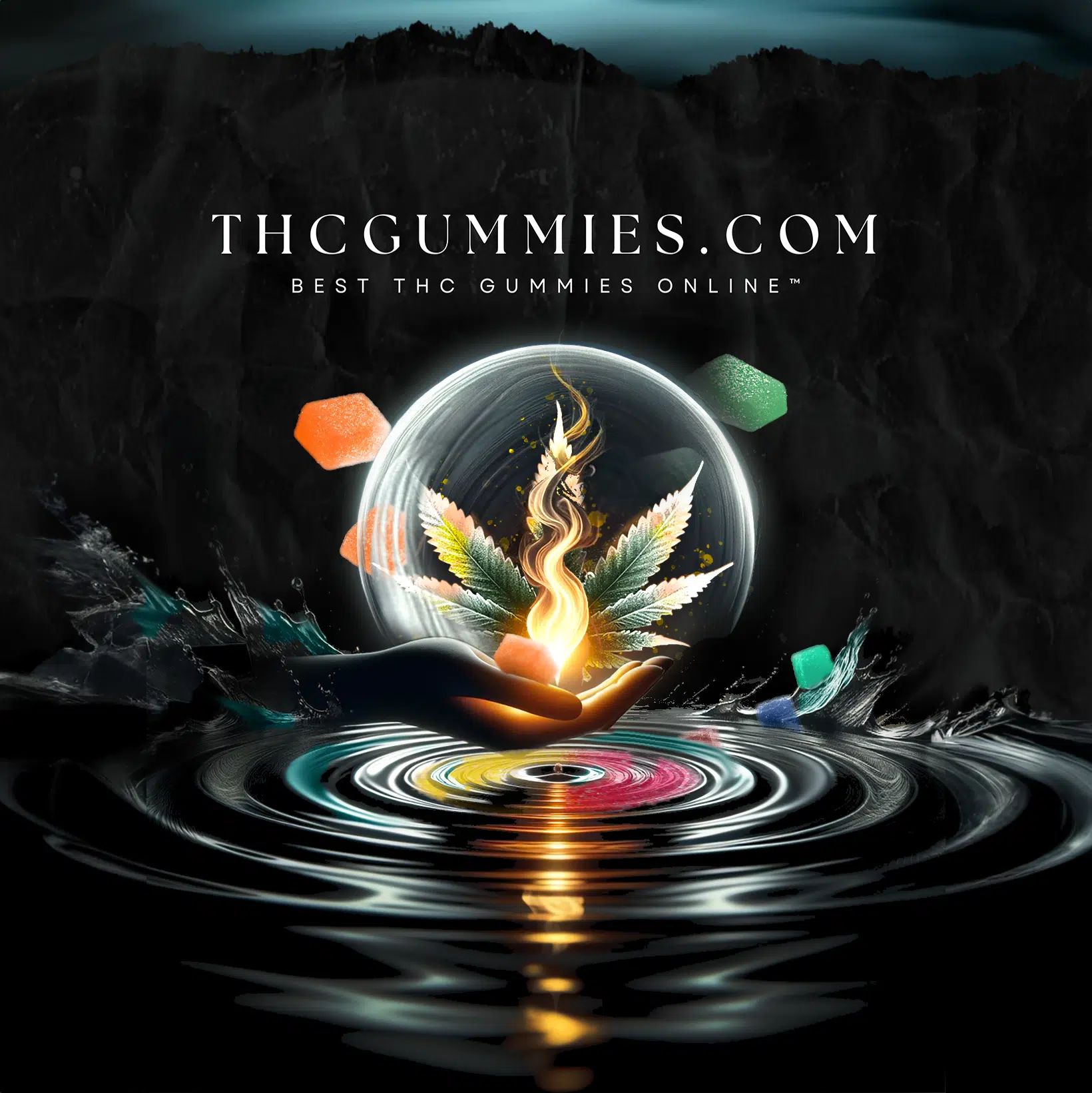
If this article sparked a new insight, pass the flame…
LET’S IGNITE RIPPLES OF CANNABIS WISDOM.
Be the catalyst for someone’s breakthrough moment.
SHARE ON SOCIAL MEDIA

YOUR CANNABIS EDIBLE
JOURNEY CONTINUES:
Looking For Something Else?
